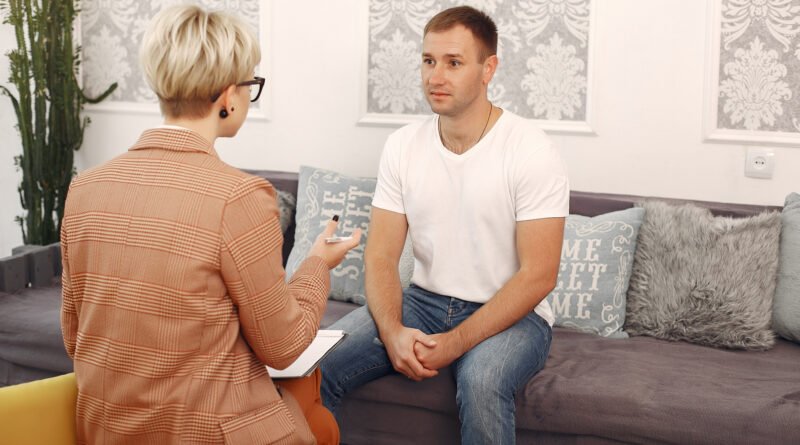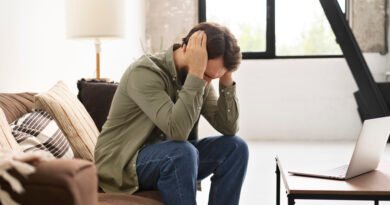Behind the Silence: Support Men in Mental Health Counselling
Mental health counselling is the foundation of overall well-being, influencing how people think, feel, and relate to others. Counsellors and therapists play a pivotal role in supporting emotional wellness, providing safe, confidential spaces for clients to explore their thoughts, process emotions, and build coping strategies. While the field recognizes mental health’s importance, it continues to contend with a gender gap: men remain significantly underrepresented as mental health counselling professionals. This disparity affects not only workplace diversity but also client preference, comfort levels, and access to care.
This article explores the conversation around men in mental health counselling, spotlighting cultural influences, the roles male therapists can fulfill, and strategies to support their greater inclusion—including from institutions like Psychowellness Center (Dr. R.K. Suri) and digital platforms like TalktoAngel.
Why Male Counselors Matter
Client Comfort and Matching Preferences
Many clients prefer therapists who mirror aspects of their gender identity, including for relatability and comfort. Male clients discussing masculinity, fatherhood, or identity development often feel more understood by male therapists. Survivors of certain trauma may also feel safer opening up to a male or female counselor, depending on their experience. Gender matching can promote trust, rapport, and the therapeutic alliance, which is strongly correlated with treatment outcomes.
Unique Perspectives
Male therapists bring lived experience of societal expectations and emotional conditioning rooted in masculine norms. Approaches like the Relational Resilience Approach (RRA), which integrates positive psychology and shame resilience theory, are designed to address men’s mental health counselling by focusing on connection, shame reduction, and empowerment. These therapists offer distinct insight into structural and personal challenges that men face.
Role Modeling Emotional Openness
Men who work openly in mental health challenge stereotypes that emotional expression is unmasculine. Male therapists act as role models, showing vulnerability and normalizing help-seeking behavior. Their visibility demystifies the stigma around mental health and demonstrates that strength belongs with emotional awareness.
Barriers to Men in Counselling
Cultural and Social Constructs
Traditional gender norms often frame caregiving as feminine. Boys are socialised from an early age to value independence and repress their feelings. This “toxic masculinity” discourages emotional work and channels men away from a career centered on emotional expression and support. Entry into the mental health counselling profession can feel at odds with masculine identity.
Professional Pipeline Gaps
The pipeline is disproportionately female in terms of education. In 2014, for example, 75% of undergraduate psychology students were female. These disparities reinforce the low male representation in graduate programs and licensing.
Financial and Prestige Factors
Compared to professions that demand comparable training, therapy is frequently thought to pay less. In the United States, the median pay for mental health counselling counsellors in 2023 was $53,710. Men who value occupational prestige or who must deal with social expectations about their income may choose not to pursue the area.
From Conversation to Action
Educational and Recruiting Efforts
Scholarships and recruitment initiatives targeting men help bridge this gap. Outreach programs that showcase mental health counselling as a respected, impactful career can shift perceptions and draw more men into the profession.
Mentorship as a Retention Strategy
Mentorship programs that connect male trainees with seasoned male therapists create support networks. Mentors offer career guidance, address imposter feelings, and foster job satisfaction—key factors in professional retention.
Shifting Public Narratives
Public awareness campaigns that redefine masculinity to include emotional strength can dismantle stigma. Media representation of emotionally aware men and spotlighting male mental health advocates can shift cultural expectations and open pathways into professions like counselling.
Psychowellness Center and Dr. R.K. Suri
Under the direction of Dr. R.K. Suri, the Psychowellness Center in Delhi NCR exemplifies inclusive mental healthcare that welcomes all genders. The center offers person-centered therapy, cognitive-behavioral therapy, and life-skills coaching while promoting gender diversity among its professional team. In-person therapy fosters nuanced emotional insight grounded in empathy, nonverbal communication, and culturally sensitive practice (Psychowellness Center).
TalktoAngel: An Online Alternative
TalktoAngel, an online mental health counselling platform, connects users with licensed counsellors and the best therapists in India through online counselling sessions. It offers culturally diverse, gender-inclusive mental health counselling support with discretion and accessibility at its core. Their network includes male therapists knowledgeable in men’s issues, such as masculinity, stress management, and life transitions. By providing a range of counsellor gender options, TalktoAngel supports client comfort and choice—beneficial for men preferring to speak with male professionals.
Benefits of Male Counsellors in Practice
- Trust-Building with Male Clients: Shared gender identity can foster a sense of safety and understanding.
- Breaking Masculinity Stigma: Featuring emotional vulnerability in therapy normalizes men’s mental health engagement.
- Communicating Relatability: Male counsellors can personally resonate when addressing gender norms, fatherhood, and identity.
The Path Forward
To better integrate men into mental health counselling professions and improve client outcomes, strategic actions include:
- Increase Accessible Educational Programs: Scholarships, outreach, and career awareness campaigns targeted at men
- Create Mentorship Networks: Foster peer and coaching relationships among male counsellors
- Reform Public Narratives: Promote inclusive ideas of masculinity and emotional openness
- Ensure Diverse Representation: Platforms like TalktoAngel and centers such as Psychowellness Center should highlight male counsellor availability
Conclusion
Men’s underrepresentation in mental health counselling is rooted in social norms, educational pipelines, and professional perceptions. Targeted initiatives—such as educational outreach, mentorship, and positive role modeling—can shift these dynamics. Male therapists bring valuable perspectives, boost male client engagement, and act as allies in breaking the silence around mental health. Institutions like Psychowellness Center, recognised as the best mental health wellness clinic in Delhi, and platforms such as TalktoAngel are leading efforts to diversify mental health counselling and normalize emotional help-seeking.
Fostering gender balance in mental health not only strengthens the profession but enriches the therapeutic landscape, providing varied role models and culturally attuned care. As our understanding of masculinity evolves, the mental health field can become a space where men and all individuals receive support—without stigma or silence.
References
American Psychological Association. (2015). Undergraduate enrollment tables. APA.
Bureau of Labor Statistics. (2024). Occupational outlook handbook: Mental health counselors. U.S. Department of Labor.
Courtenay, W. H. (2000). Constructions of masculinity and their influence on men’s well‐being: A theory of gender and health. Social Science & Medicine, 50(10), 1385–1401. https://doi.org/10.1016/S0277-9536(99)00390-1
Lambert, M. J., & Barley, D. E. (2001). Research summary on the therapeutic relationship and psychotherapy outcome. Psychotherapy: Theory, Research, Practice, Training, 38(4), 357–361. https://doi.org/10.1037/0033-3204.38.4.357
Mosher, M. (2013). Relational resilience: A positive psychology approach. Journal of Men’s Studies, 21(2), 164–180.
Psycho Wellness Center. (n.d.). About us. https://example.com/psycho-wellness-center
Sue, D. W., et al. (2007). Multicultural competencies and standards: A response to the Garrett et al. (2004) study. American Psychologist, 62(9), 928–942. https://doi.org/10.1037/0003-066X.62.9.928




